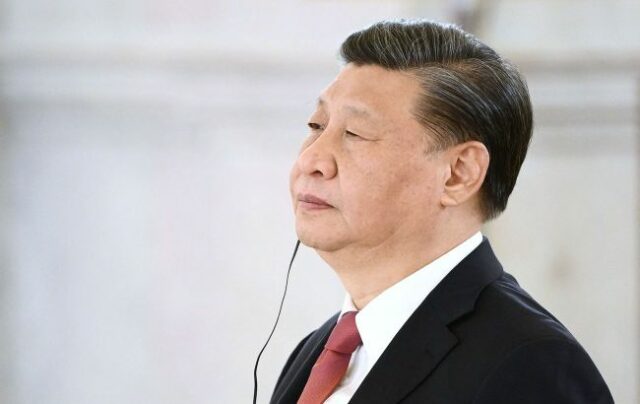Chinese Leader Xi Jinping’s Diplomatic Efforts for the Russia-Ukraine Conflict: A Closer Look
In his recent European tour, Chinese President Xi Jinping tackled a topic that weighs heavily on the hearts and minds of many: the ongoing conflict between Russia and Ukraine. A meeting in Paris highlighted his commitment to seeking viable solutions to this crisis, which has shaken not only the region but has also reverberated around the globe. Reports from RBK-Ukraine, referencing Le Figaro, shed light on Xi’s remarks about the situation, which he termed the “Ukrainian crisis.”
### Understanding the Impact
The ripple effects of the Russia-Ukraine conflict are profound. Countries across Europe have felt the repercussions, from economic strain to a humanitarian crisis affecting millions. Most notably, energy prices have surged, with many European nations grappling with rising costs—according to Eurostat, energy prices increased by nearly 40% in some areas since the outset of the conflict. This underscores the urgency for collective international efforts to restore stability.
During his discussions, Xi acknowledged the shock experienced by Europeans, stating, “We understand the shock caused by the Ukrainian crisis for the people of Europe. China is not a source of this crisis and has not participated in it.” This comment not only attempts to distance China from the conflict but also positions the country as a potential mediator—a role that can have far-reaching diplomatic implications.
### A Diplomatic Approach
Xi’s optimism for peace and stability is noteworthy. In an era where divisive politics often overshadow dialogue, his willingness to engage in cooperative discussions is refreshing. He has offered China’s collaboration not only with France but with the international community at large to devise effective solutions. One example of successful diplomacy is the 2015 Iran nuclear deal, which required collaboration across multiple nations to achieve a diplomatic resolution. Similar collaborative efforts could be vital in the current situation.
#### Points for Consideration:
— **Mutual Cooperation**: Engaging in dialogue requires trust-building measures, such as confirming commitments to ceasefire or negotiations.
— **Engagement with Stakeholders**: In addition to European leaders, including those from NATO, it’s crucial to involve international organizations like the United Nations for a broader input.
— **Real-life Impact**: Constructing a comprehensive plan for humanitarian aid and support can relieve the immediate suffering caused by the conflict.
### Moving Forward
As Xi continues conversations with French President Emmanuel Macron and European Commission President Ursula von der Leyen, the focus is on nurturing a collaborative environment. With each diplomatic dialogue, the hope is to inch closer to tangible resolutions that can bring relief to those affected by this crisis. Statistics indicate that over 7 million Ukrainians have been displaced, underscoring the urgent need for action.
In navigating these complex waters, the shared experiences of discussing mutual interests could pave the path towards peace. After all, history teaches us that collaboration can often yield unexpected, yet profound, outcomes.
As we watch these developments unfold, it’s vital to remain hopeful, yet realistic. The road to peace is rarely straightforward, but with committed leaders at the table, the possibility for resolution becomes a beacon of hope amidst uncertainty. The world is watching, and the stakes couldn’t be higher.





